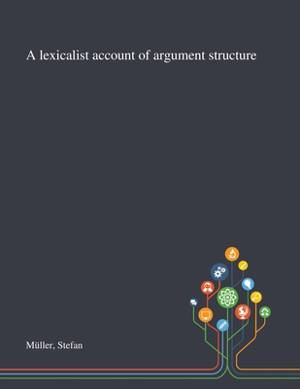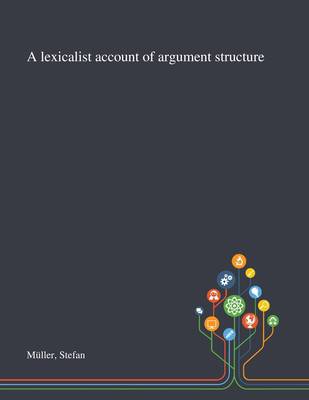
Wil je zeker zijn dat je cadeautjes op tijd onder de kerstboom liggen? Onze winkels ontvangen jou met open armen. Nu met extra openingsuren op zondag!
- Afhalen na 1 uur in een winkel met voorraad
- Gratis thuislevering in België vanaf € 30
- Ruim aanbod met 7 miljoen producten
Wil je zeker zijn dat je cadeautjes op tijd onder de kerstboom liggen? Onze winkels ontvangen jou met open armen. Nu met extra openingsuren op zondag!
- Afhalen na 1 uur in een winkel met voorraad
- Gratis thuislevering in België vanaf € 30
- Ruim aanbod met 7 miljoen producten
Zoeken
€ 37,95
+ 75 punten
Uitvoering
Omschrijving
Currently, there are two prominent schools in linguistics: Minimalism (Chomsky) and Construction Grammar (Goldberg, Tomasello). Minimalism comes with the claim that our linguistic capabilities consist of an abstract, binary combinatorial operation (Merge) and a lexicon. Most versions of Construction Grammar assume that language consists of flat phrasal schemata that contribute their own meaning and may license additional arguments. This book examines a variant of Lexical Functional Grammar, which is lexical in principle but was augmented by tools that allow for the description of phrasal constructions in the Construction Grammar sense. These new tools include templates that can be used to model inheritance hierarchies and a resource driven semantics. The resource driven semantics makes it possible to reach the effects that lexical rules had, for example remapping of arguments, by semantic means. The semantic constraints can be evaluated in the syntactic component, which is basically similar to the delayed execution of lexical rules. So this is a new formalization that might be suitable to provide solutions to longstanding problems that are not available for other formalizations. This work was published by Saint Philip Street Press pursuant to a Creative Commons license permitting commercial use. All rights not granted by the work's license are retained by the author or authors.
Specificaties
Betrokkenen
- Auteur(s):
- Uitgeverij:
Inhoud
- Aantal bladzijden:
- 104
- Taal:
- Engels
Eigenschappen
- Productcode (EAN):
- 9781013291685
- Verschijningsdatum:
- 9/10/2020
- Uitvoering:
- Paperback
- Formaat:
- Trade paperback (VS)
- Afmetingen:
- 216 mm x 279 mm
- Gewicht:
- 263 g

Alleen bij Standaard Boekhandel
+ 75 punten op je klantenkaart van Standaard Boekhandel
Beoordelingen
We publiceren alleen reviews die voldoen aan de voorwaarden voor reviews. Bekijk onze voorwaarden voor reviews.











